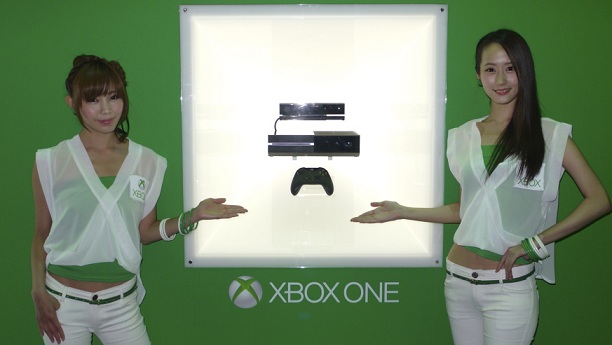This is the second of two interviews I had with Microsoft Japan, at the Tokyo Game Show. The first, with Ryotaro Hoshi, Product Marketing Manager for Microsoft Japan, can be found here. In this next interview, I talk to Naoyuki Isogai, Director of the Xbox Marketing Group in Microsoft Japan.
Naoyuki Isogai for Microsoft Japan: "You're fine with just talking about Japan?"
Heath Hindman for GameRevolution: "Yes, that's fine, I live in Japan. I actually came here to talk about Microsoft in Japan, specifically. So, anyway, Mr. Hoshi, was telling us about Forza. He said it might be a game that could bring the Xbox One into more Japanese households. What about you? If you also had to predict one game that would be the reason for a Japanese gamer to pick up an Xbox One, what would it be?"
Isogai: "As far as we have publicly announced, it has to be Titanfall. That said, we're working with our different studios and many Japanese developers to provide more and more and more convincing titles. We're going to put a lot of things onto the Xbox One for Japanese consumers."
GR: "So did I get that right? There is something coming up that hasn't been announced that might be more appealing than Titanfall?"
Isogai: "Sure, sure."
GR: "Is this unannounced game by a Japanese developer or a Western developer?"
Isogai: *Smiling* "We are not, ah, we can't–"
GR: *Nodding* "Can't say, can't say, right. I understand."
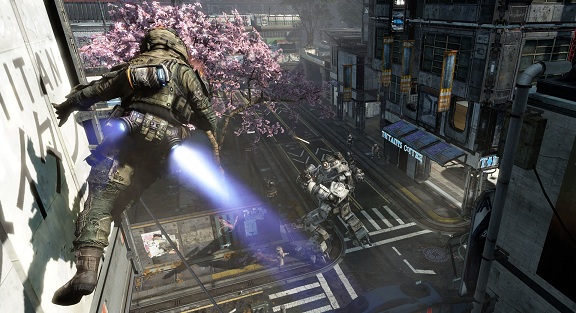
Isogai: "There is nothing specifically to say yet. My intention is to show the possibility as well, the potential. You know, there have been more than 1000 game titles on Xbox 360 for now, but prior to the 360's launch, we didn't accept all of the 1000 titles by the launch, right? So in the future, there should be more titles for Japanese consumers. It's a natural thing, right?"
GR: "Yeah. The 360, in NA and in Europe, it was very popular. It was the most popular console in North America. But in Japan, it sold less than 2 million in its whole life so far. What did MS Japan learn from that that will make Xbox One do better?"
Isogai: "Well, we are not publicly announcing about the shipment or install base numbers about the 360 in Japan, so I cannot say yes or no to your less than 2 million thing. I can not say anything on top of that. Sorry for being sticky with details."
GR: "Right, but I wasn't really asking for the number so much as I was asking what you plan to do about the number — how Microsoft Japan can increase the size of the Xbox fanbase in Japan? What did you learn from the 360 experience, of shipping it, of making it, and watching its market performance in Japan? Because people try to get better every time we do something, right? We always get better with experience. What has Microsoft Japan learned that will help Xbox One sell more than the 360?"
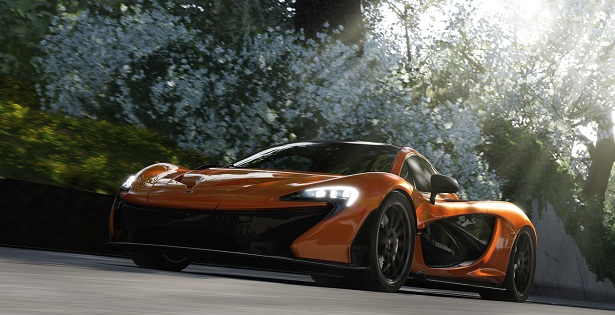
Isogai: "Well, first, I am not allowed to say the exact number. But, I wouldn't say that Xbox 360 sales were low. To some people it was low, but to us, each user means so much [as an underdog company]. An individual user is very important to us, so even though the numbers might not be as high as some other systems, we will continue to show support to Japan. We will try to increase the number of course. Every company will. But our individual fans are important enough that we'll continue here."
GR: "So what will you do differently?"
Isogai: "If we would like to increase the numbers of 360 or Xbox users in Japanese market more and more and more, we realize that we should have more Japanese relevant content, and also the differentiation against other platforms. Based on that, we are thinking about how we would like to market Xbox One in the Japanese market. To get differentiation from other platforms, first we must of course emphasize the gaming itself, but in addition to that, we are really committed to integrating other entertainment, like TV, movies, music, etc. into one box.
"We put HDMI input, not just output into this box. We can stream TV content into Xbox One and control TV program aligning with other entertainment content like gaming. So you can watch TV while you are playing games. This is not only about gaming but about music and other apps. We acquired Skype a couple of years ago, and this console ships with Skype, so while you are doing video chat using Skype, we can do other things like TV or web browsing, and of course gaming. This right side of the screen, you can easily switch between multiple types of entertainment content, very quickly and in a very intuitive way."
GR: "I see…."
Isogai: "The third differentiation point will be Kinect. Of course, Kinect is really enhanced compared to the 360 version. We might say it's rebuilt from scratch. So the distance is short, which is very important to Japanese market."
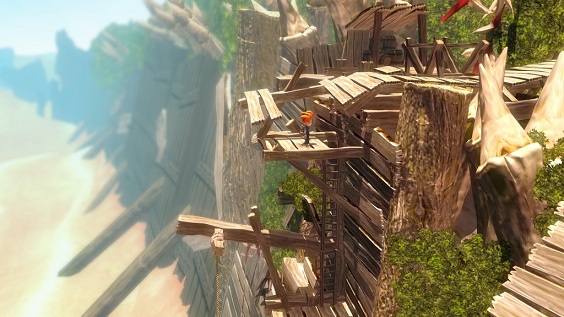
GR: "That was going to be one of my next questions, about Kinect in a Japanese house or apartment. A lot of them aren't very big."
Isogai: "Yeah, it requires a shorter distance, and it's rebuilt for sitting. There were some games made for sitting with 360 Kinect, but basically it was the device was meant for playing standing. For this one, the sitting play style is incorporated into the design from the beginning, and also, even if there is something in between the sensor and the player, the new Kinect can handle it. The current version of Kinect for 360 basically stops if there is something like a table or kotatsu in front. You couldn't play a game in that situation."
GR: "Ah, so the new Kinect is smarter about that kind of stuff?"
Isogai: "That's right. Also, the fidelity for the Kinect sensing has been drastically improved. For example the 360 version of Kinect just tracked the overall skeleton."
Mr. Isogai gave me a detailed demonstration of the new Kinect, in which I participated, of course. Holding up a hand on the old Kinect basically showed us just a solitary glow for the whole hand. Meanwhile, the new one detected nearly all of my fingers, and could tell when my hand was open or in a fist shape. I was also a little freaked out to notice the Kinect monitoring my heart rate.
GR: "What in the world is… is that our heart rate?"
Isogai: "Yeah."
GR: "Ha-ha, that's cool. So if I'm having a heart attack… 'Janelle, turn on the Kinect, I need to see if I'm OK.'"
Isogai: "Haha, well, this is actually only a simulation, it's not a medical thing."
GR: "Yeah, I know, I won't write that Kinect is a doctor or something, don't worry."
We got a little side tracked in a friendly conversation about how Kinect is sometimes used in hospitals, for doctors checking files and things like that. Back on the topic of games, though….
GR: "Will there be games that use this heart rate thing?"
Isogai: "Possibly. I personally would love to see that happen, of course."
GR: "Did you ever play a game called Eternal Darkness on the Gamecube?"
Isogai: "Yeah!"
GR: "Something like THAT, on THIS, with the heartrate thing, and you gotta calm your heart down…"
Isogai: "Yeah! A horror thing would be a good fit for this, actually."
Fact: the GameCube was awesome.
GR: "Now I've heard that every Xbox One is also a development kit. They've said that if you have that, you have a development kit, you can make games if you want to."
Isogai: "Yes, but you can't just get it and start making games right away without setting up anything. You'll need to join a program called ID@Xbox. It's aimed at a wide range of potential developers, including personal or big companies. If personal or enterprise developer has an Xbox retail console and it's connected by internet, we can provide very special activation method via internet so that the console could be turned to development console. If anyone is curious, they can read the details and find the application form there."
GR: "Do you think that this program will attract a lot of Japanese independent game developers?"
Isogai: "Yep."
GR: "How big or small of a role can that play in increasing the Xbox popularity in Japan?"
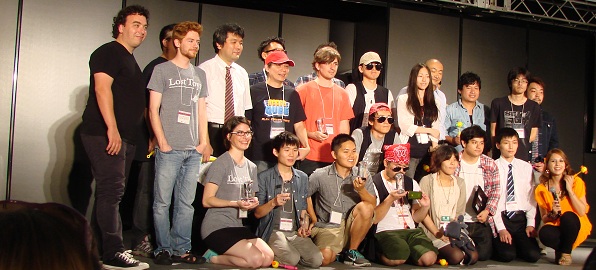
Isogai: Yep, I think it will be pretty big. This is a new system that will attract Japanese independent developers. Because, as I said, users can put something different than games on the right hand side of the screen, and this area not only gaming or video or music, but wide variety of apps could be posted in here. So they can try new things with Xbox One. And the apps posted in here are not only here, but could be expanded to full screen as well. It's using Windows, so the development technology used for that is about the same as Windows 8. Windows apps are basically developed in what's called Visual Studio. Furthermore, if anyone develops a game for Windows 8, they can take that game with almost the exact same code, to the Xbox One. It's up to the developer if they want to or not.
GR: Oh wow, so if you develop something for Windows 8, if the developer chooses, it can run on Xbox One with almost the same code?
Isogai: Yeah, almost the same code.
GR: "Interesting. This talk of Windows 8 brings up another issue: a lot of people in Japan don't have PCs. And even more than that, when they do have PCs, they're running an old version of windows — sometimes XP. Does this social situation creat another window of opportunity for Xbox One?"
Isogai: *Thinking*
GR: "If I may give some flesh to that question, we live in Japan and a lot of our acquaintances don't have a computer in the house, or maybe they have a really old Windows XP computer or they just use their smartphone instead of a computer. Do you think that that's an opportunity for something like this to get a bigger edge in the market?"
Isogai: "Yes and no. We're going to continue to promote the use of PCs. In the shops, Xbox One won't be a competing product, but a companion to them. There is an app called SmartGlass."
GR: *Nods*
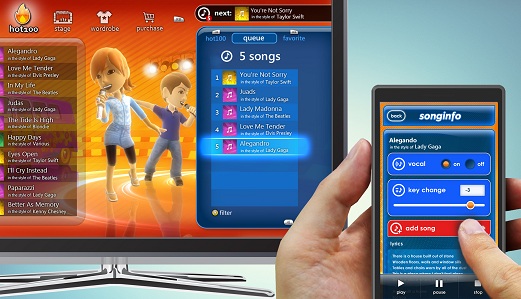
Isogai: "SmartGlass is an app for Windows Phone, Windows 8, Android and iOS. So almost 99% of the smartphone or tablet, yeah, could be the host for SmartGlass app. And what SmartGlass does is connect with XB console via cloud, and then if you are watching some video on Windows tablet on the train, for example."
GR: "This is a very realistic scenario for me, continue."
Isogai detailed SmartGlass and how it might appeal to the Japanese lifestyle. His example was that if you might be riding the train and watching a movie on your tablet. But then, of course, you need to get off the train and walk home. He explained the process of taking your movie right from your tablet to your Xbox One and picking up at the same point you left off. This may appeal to the Japanese way of life, as there are tons of people who use public transportation, and so many of them have their faces buried in some sort of screen. Isogai sees strength in the relationship between the Xbox One and a wide variety of other devices.
Isogai: "This isn't just about video, but also about games. If you play tablet or smartphone games with Xbox Live account, the achievements or gamerscore of the tablet or smartphone game will be reflected on the one specific Xbox Live account which also is connected to this console."
GR: "That's interesting, that's interesting."
Isogai: "These days, it's possible to provide a lightweight game using SmartGlass or a smartphone or tablet, or for example, like sports games, the training app. There might be a very routine training app, like squats or something like that and you can kill time doing that on the train, then you come back to the home and sit here, and your player has grown up."
GR: "Hahaha, that's interesting. I feel like I've seen something similar… I think I saw something like that on the Dreamcast so many years ago, it had that thing that you stick in the controller. But the Dreamcast is a looong time ago, our old friend, right?"
We thought about the Dreamcast at length.
Isogai: "Hahaha. Yeah, the point here is we can do that with smartphone or tablet which is already in the market."
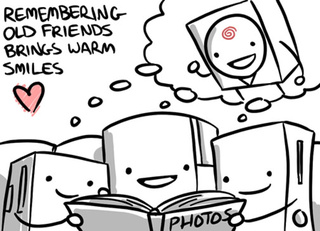
GR: "Yeah, not like with the Dreamcast VMU which is only for the Dreamcast."
Isogai: "Or like the PSVita and PS4."
GR: "Ahh, true. That was actually going to be one of my next questions. This holiday season, the PS4 isn't coming to Japan, but it's going everywhere else. Meanwhile, the new Vita is coming to Japan, so clearly Sony is emphasizing portables in Japan, now. And Nintendo also. They price cut the Wii-U, even though they're already losing money on the it, and they're emphasizing the 3DS; so many big new Nintendo games are for 3DS and it's the number-one selling system here in Japan, every week. The market looks like it's going portable. How is the Xbox One ready for that, as a home console? How are you prepared for that?"
Isogai: "Here is our approach: we want to work with what people already have."
Mr. Isogai made the point was that a smartphone and a tablet are much more common in the marketplace than a PlayStation Vita, or even a 3DS. Sony promotes the connectivity between the PS4 and Vita quite a bit, but Isogai maintains that people are less likely to own a Vita than a smartphone or tablet, and therefore, the Xbox does not need a handheld companion.
Isogai: "Also, we are not believing that the market has gone totally portable. Of course, the people who are doing portable gaming are increasing. That, we understand. That said, we don't believe vast majority of them are going to stop gaming on consoles. That's the reason why we are (still making an Xbox console and) investing in something like SmartGlass."
GR: "What's been the most popular game here, that people have been playing at Xbox One's booth? When they come, they want to play_______?"
Isogai: "Titanfall."
GR: "Titanfall. I thought so. I played it yesterday. So, you got me. Yep. I came I wanted to see Titanfall right away, it's true. So a lot of people have seen Titanfall?"
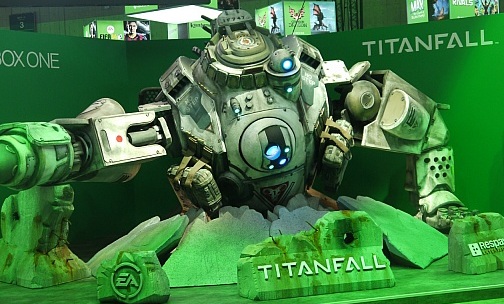
Isogai: "Yes. And next would be Forza."
GR: "Last question: about how many Xbox Ones you think you'll sell in Japan, in your first year on the market?"
Isogai: "Haha, that we can not tell."
GR: "I didn't think so, but I have to ask."
Isogai: "That's your job."
*All laugh*
GR: "Alright, I think that's about it. Thanks for the time."
Isogai: "Thank you too."
We thank Microsoft Japan, Mr. Isogai, and Mr. Hoshi for their time.
